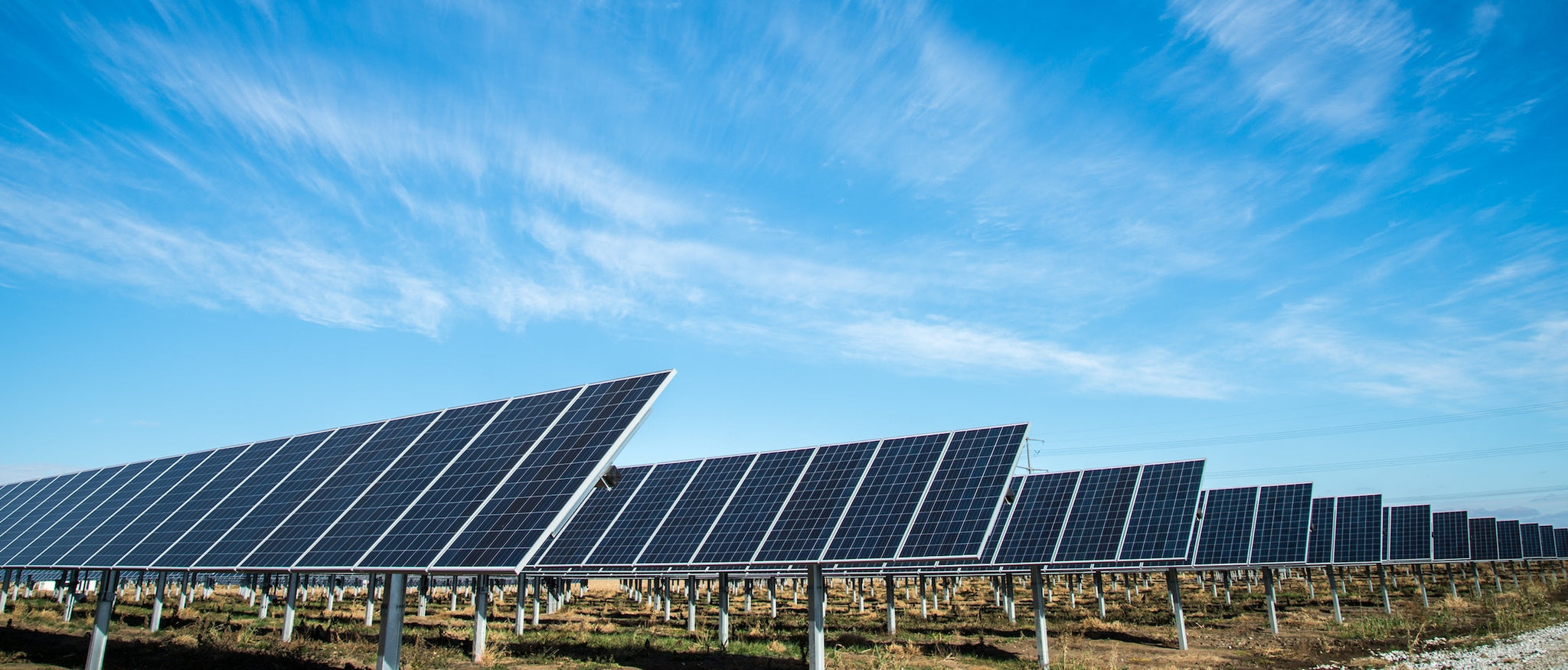Photo by NASA
Climate change predictions continue to turn bleaker every day. Whether it’s our land, air, or oceans being affected, we simply cannot continue supporting unsustainable practices with any kind of clear conscience.
It’s important to do more than sit back and let our social media “slacktivism” give us false hope. Our little blue planet is in desperate need of some green TLC!
Good news is: there are plenty of both small and large-scale protectionist movements and green initiatives worth supporting.
If you want to take your first steps to becoming an eco-warrior, start by updating your consumption, transportation, and conservation habits. Here are 7 concrete things you can personally do to help protect the planet.
Kermit was right: it’s not easy being green. But when each of us works to reduce our carbon footprint individually, the collective ripple effects are worth the effort!
1) Rethink your diet

Back in our hunter-gatherer days, it wasn’t uncommon for our ancestors to go a few days without meat. Yet today, we expect most meals to contain at least one animal protein.
Unfortunately, this modern luxury plays a BIG role in global warming. Cattle farms release methane gas that account for 18% of greenhouse gas emissions. Plus, whether it’s cows, chicken, or pigs, raising animals for meat uses up far more of our precious resources than merely growing crops.
So if you want to help preserve water, land, energy, and air quality, start eating lower down on the food chain. You don’t have to give up steak! Simply make an effort to incorporate more vegetarian meals into your routine. #MeatlessMondays, anyone?
Need some weeknight dinner inspiration? Try one of Jamie Oliver’s staff-picked top five vegetarian recipes!
2) Buy local, buy organic
When you hear words like “local” and “organic” together your mind usually jumps to food. But think outside the icebox for a moment: Your clothes, your furniture, even your toiletries; everything has an origin story. Time to question where you get your goods.
The farther each item has to travel, the more energy is spent on transportation and storage. Pollution is another area of concern. Besides the vast fleets of transport trucks filling our skies with CO2 emissions, the production process for the products themselves likely involved harmful chemicals that devastate surrounding ecosystems.
So next time you’re shopping, read labels closely and ask questions. Is this shirt made with organic bamboo? Was the wood for this furniture sustainably sourced? Do these strawberries have more airmiles than me?
In Montreal, we’re spoiled for choice as local shoppers, with plenty of friperies and artisanal pop-up markets making it easy to support our local economy. You’ll find manufacturers and craftsmen selling all kinds of wares both online and off. Check out Signé Local and Made In Montreal’s online shops.
If you prefer offline shopping, keep an eye out for the mobile pop-up store Neoshop boutique, which can be found in the Quartier de L’innovation at the moment. It features products made by local startups.
'' At ergonofis, we pride ourselves offering Canadian-made products using locally sourced wood. To read more about our local initiative, check out Our Story. ''
3) Tweak your travel plans

Quebec City, Canada - Mont-Tremblant, Canada
Speaking of airmiles, let’s talk about those frequent flyer pitfalls. Did you know that taking just ONE less transatlantic flight per year would stop 1.60 tonnes of CO2 emissions? Air travel produces triple the amount of carbon dioxide per passenger than rail or public transit! Skip Fiji and opt for a staycation campout!
The David Suzuki Foundation cites that a full quarter of Canada’s greenhouse gas emissions all come directly from transportation. That means we’ve got to pay more attention to our roadrunner habits too.
Can you bus, carpool, bike, or walk to your destination? If not, then clear your conscience by driving a fuel-efficient compact car. If you can get a hybrid or all-electric ride, you can rest easy knowing you’re protecting both the planet and your wallet from fossil fuels.
Montreal’s public transit system makes it incredibly easy to live car-free, and services like Car-to-Go (compact cars) and Communauto (hybrid cars) help fill in the gaps not covered by STM.
Save money while saving the planet! Ride shares, VIA Rail trains, and Greyhound buses are all budget-friendly options compared to most airline tickets. On your next holiday, look a little closer to home and check out our top 3 favourite destinations in the province: Quebec City, Mont Tremblant, and Gatineau.
4) Remember - Reduce and Reuse
So many of us focus on recycling that we forget about the other R’s. The first one, (Reduce), is probably the most essential. When we buy things we don’t need, we end up cluttering our lives and the planet when they ultimately end up in a landfill.
Practicing minimalism is a very personal choice, but it’s possible to help others with their own carbon footprint. Buy gifts that are useful! You can practice the second R (Reuse) by browsing second hand stores first, or better yet, supporting local craftsmen that use recycled materials.
When you can’t repair or repurpose something, consider donation. Some community projects will take old paint cans off your hands, and some businesses will even take broken items for parts. And once you reach the final R (Recycle) make sure to be responsible with items like batteries, electronics, and motor oil.
If you’re looking to donate renovation supplies in Montreal, check out the ReStore organization that’s part of Quebec’s branch of Habitat for Humanity.
The Renaissance Donation Centres will take old electronics off your hands and recycle them in a safe and ecological manner. They’ll also accept a wide variety of donations beyond the usual clothes and shoes.
If anything you have to donate is broken, try the Collecte Verte’s. Their environmental initiative is dedicated to keeping your junk out of landfills.
5) Stick to Renewable + Reusable

Photo by American Public Power Association on Unsplash
Product design is about more than customizable colors and pretty packaging. Pay attention to which companies are making an effort to address environmental concerns built right into their products. Whether that means minimal packaging or reusable features.
Rechargeable batteries, refillable pens, reusable diapers, and feminine hygiene products… There’s a lot on the market and exciting Kickstarters being funded all the time. Support entrepreneurs doing their part to protect the planet!
If you were blown away by those old-school solar-powered calculators in math class, keep your eyes peeled. As solar power becomes more affordable, you’ll notice more electronics adopting it as a common feature.
Why stop there? Making the switch to solar panels or wind farms as your main power source is now easier than ever. If you bring reusable energy into your home then all your appliances can be fueled guilt-free.
Check out some of the tax credits, financial incentives, and rebates available to Quebec citizens that make the switch to solar.
6) Waste less energy
Seems everyone has a “hot tip” for conserving energy in the home. Some are as easy as making sure all of your appliances are certified as energy efficient. Others can be more eccentric, like crafting a DIY space heater out of a candle and clay planting pots.
Lower your thermostat
Conserving energy means first making sure not to use as much of it, and then getting as much mileage out of it once in use. So you can lower the thermostat, but make sure your home is well insulated too. Get rugs, use heavy curtains instead of blinds, and check for drafts that can be sealed.
Check out five more tips on how to conserve your home’s heat throughout our frigid Canadian winters:
Avoid the Dryer
Like a leaky faucet wasting gallons of water, you’d be surprised how much electricity is squandered with certain appliances. Dryers are notorious power-suckers and should be avoided when possible (your clothes will last longer too!). Any electronics with “standby” modes should also be unplugged when not in use.
7) Make every drop of water count
Freshwater is a finite resource that many of us take for granted, especially in Canada where we have far more of it. We end up wasting our precious supply in almost imperceptible ways. How many of us have failed to refuse water at restaurants that we don’t really plan to drink?
Changing our water consumption habits is often one of the more difficult adjustments we can struggle to make. Some of them can seem extreme (like only flushing the toilet when “nature calls” and dials #2). Yet it’s not impossible to make tiny alterations in our daily lives that add up to big water savings.
They say it only takes 21 days to form a new habit. Make it your New Year’s Resolution to adopt ONE new water-saving routine each month until they all become second nature. Even if only one of them sticks, the number of conserved gallons will surprise you.
To start, try taking shorter showers, running the washer and dishwasher only when full, and shutting off the faucet when you brush your teeth or wash your hands. After that, get creative and see what other habits you can keep adding your new, greener lifestyle.
Check out these great tips to help save water at home

Infographic by Schreiber
Don't stop here!
These seven tips are a great start, but there’s always more you can do to make your eco-friendly ripples spread wider. First, remember to stay up-to-date with new research on climate change and spread awareness on important findings.
Actions speak louder than words, so rather than trying to talk your colleagues into helping you protect the planet, aim to inspire them. Make the most delicious vegetarian recipe at the next potluck. Start a community garden where everyone is welcome to grow their own fresh local produce. Organize Earth Day and Buy Nothing Day events with your office colleagues.






1 comment
Oui
Leave a comment